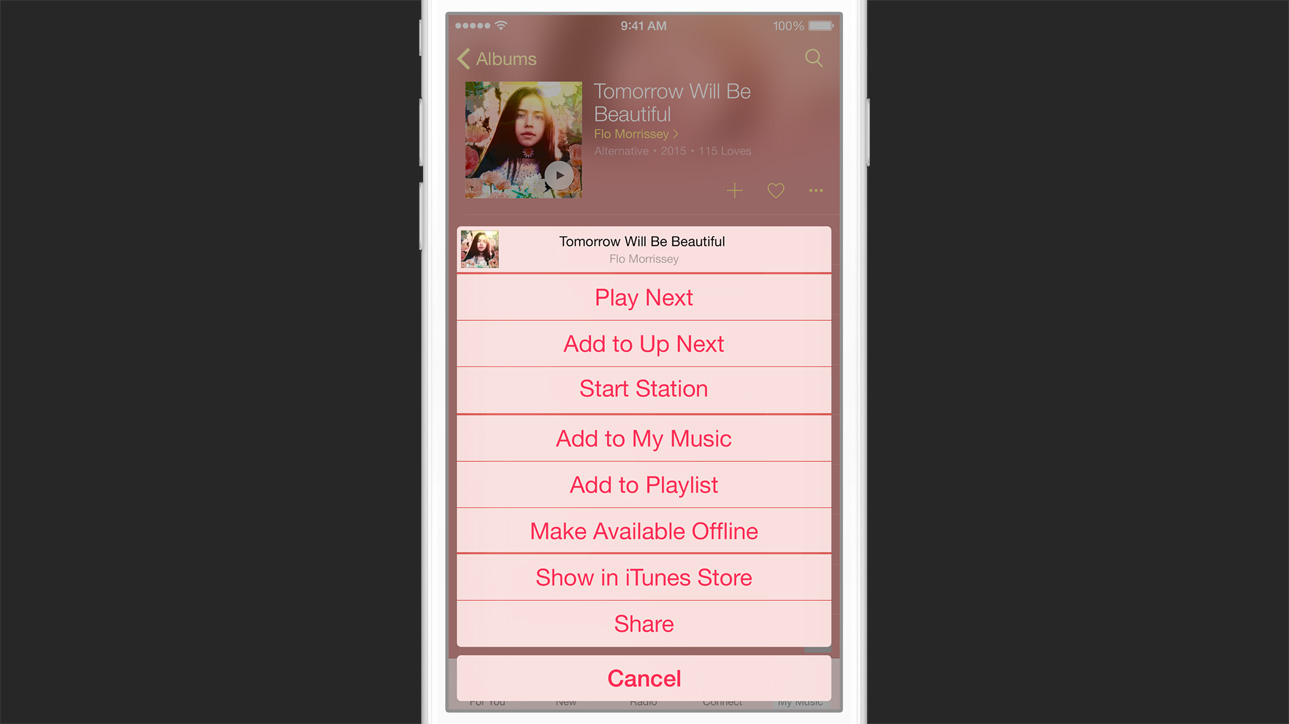The most disruptive feature of Apple Music isn't what you think

Apple made a big deal of its new Apple Music service on Monday, using its revered "one more thing" tag to debut the app, which arrives on June 30.

Apple Music is a direct descendant of Beats Music, which the company purchased last year, along with other Apple's existing and previous music plays. On the surface, it's pretty comparable with Spotify, Rdio, Google Play Music and the like, although each option has minor tweaks that will still be attractive to users.
Some of these offer free music streaming with lower sound quality, a limited number of track skips and audio ads. Google Play Music also includes free storage for 50,000 track uploads at no charge.
So where's the revolution here with Apple Music?
WWDC 201
One could argue that Beats 1, a 7x24 worldwide online radio station with human DJs is it. Or maybe it's the surprising move that Apple is supporting non-iOS devices with Apple Music: It will work with Windows PCs and Android phones; a move that could broaden the appeal.
I don't think think those are truly disruptive, though.
The real disruption comes from something that Beats Music already provided, albeit in a carrier exclusive. When Beats launched its music streaming in early 2014, AT&T subscribers could get a special deal: A $14.99 monthly account for up to five family members.
Compare Apple Music to all of the big players and this is simply a better deal. Sure, you can get Family plans from most of the music streaming services but once you get past two family members, you pay more than you would for Apple Music.
Why? The Family plans are often discounts: 50% off the typical $9.99 monthly price for each additional person added. That means for $14.99 a month, two people can stream music on competing service while Apple Music allows for three more individuals with up to six in total.
As an AT&T subscriber, I took advantage of the Beats Music deal for a while. Eventually, I dropped it because family members opted to try iTunes Radio, Google Play Music -- where I now have a subscription -- or other similar music services.
When I told them about the Apple Music Family plan, they (and their iPhones) were happy campers. We'll be consolidating, at least on a trial basis, to Apple Music later this month. And thanks to cross-platform support, later this year, my Android phones won't skip a beat with Apple Music.
Hands-on with Apple iOS 9 (in pictures)
I'd expect a few of Apple's competitors to follow suit with a $14.99 a month family plan in the coming months. Those that can afford to so, that is. Since Spotify just closed a $526 million funding round, I'm betting it is the first. Google can afford to do the same with Play Music. Others may gamble with reduced family plan pricing in hopes of retaining customers.
The bigger question is: Do any of these have the same pull as Apple to negotiate the ability to even offer such plans?
This is where Apple is in the driver's seat, even if Apple Music itself isn't that revolutionary. And when a company has that much clout, it typically brings disruption, even if that disruption is solely in the price of a service that others now have to react to.